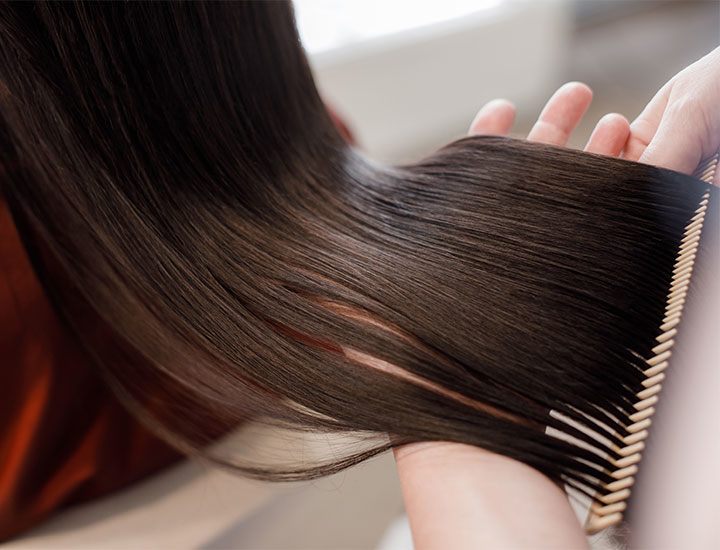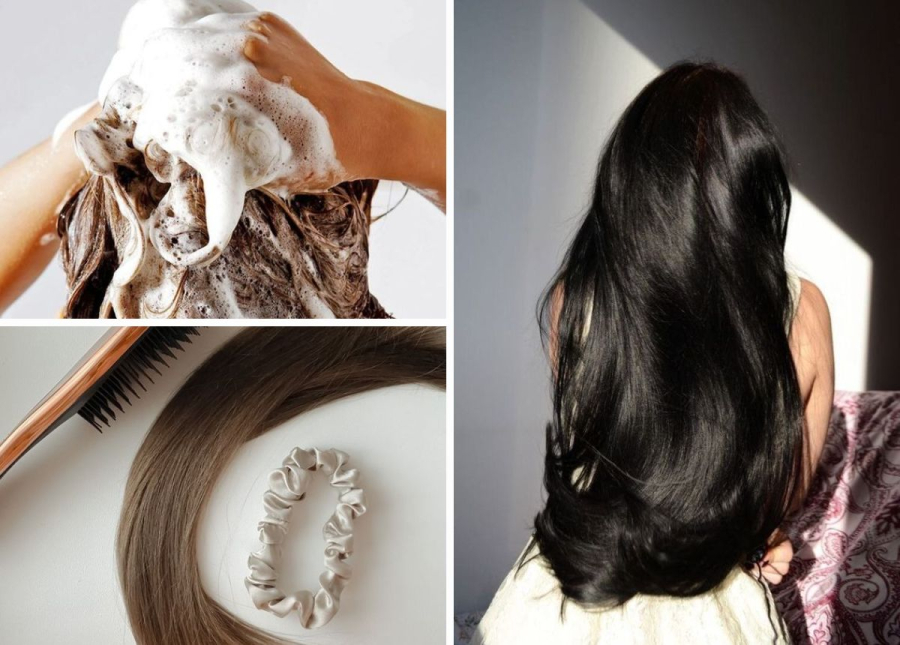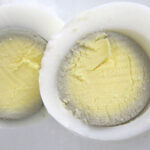Using Water That’s Too Hot
There’s nothing quite like a hot shower, but it can take a toll on your hair. Extremely hot water can strip away essential oils, leading to hair thinning over time.
Washing your hair with hot water removes the healthy natural oils from your scalp, leading to dryness. It’s better to keep the water temperature warm-to-cool and finish with a cold rinse for added shine.

Hot water can strip away essential oils, leading to hair thinning.
Over-Shampooing
One of the most common mistakes people make is shampooing too often. Over-shampooing can strip away the natural oils that keep your hair moisturized and healthy. Try to limit your washes to a maximum of three times a week.
Using a Regular Towel to Dry Wet Hair
If your towel is made of coarse cotton, like most towels, you may be roughing up your hair in a way that exacerbates split ends and can lead to frizz, breakage, and even hair loss.

One of the most common mistakes is shampooing too often.
Using Harsh Shampoos
If you’re using a shampoo containing sulfates and parabens, you may be unintentionally drying out your strands and contributing to hair thinning and loss. Sulfate-based shampoos, not conditioning after washing, and leaving styling products on the scalp or strands for too long can all have negative effects.
Opt for sulfate-free options that are richer in natural oils, use cooler water when bathing, and deep condition your hair once a week. Also, minimize the use of heat-styling tools and treatments (using a good conditioner can also protect against heat damage).
If you’re experiencing significant hair loss, pay attention to your hair care routine, from incorporating hair-friendly foods to using suitable products. Prioritize the use of essential oils. These concentrated plant extracts offer numerous benefits for your hair and scalp and can stimulate hair growth.
Essential oils are rich in fatty acids, vitamins, minerals, and antioxidants. When used correctly, they can help nourish and strengthen your hair, promoting healthier growth.
The Ultimate Guide to Mastering the Art of Egg Preparation
Eggs are a versatile and nutritious food, offering a range of health benefits and an excellent source of protein. They are a staple in many diets and can be prepared in a multitude of ways, from boiled to fried, scrambled, and beyond. However, it is important to prepare eggs safely to avoid any potential health risks. With that in mind, we’ve put together some handy tips for preparing eggs, covering various cooking methods, to ensure you get the most out of this delicious and wholesome food.



































